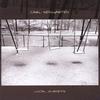There’s something about artists
who work off the grid, who insist on finding their own creative way. Established styles can be inspiring, and
popular trends are seductive, but in my view, the best work is for its own
sake.
One such person was a woman who
worked at the Delmar-Harvard Elementary School I
attended in the 1960s. Her name was Mrs.
Bartlett. She was not a teacher, though
I learned from her. She was not an administrator,
secretary or librarian. Mrs. Bartlett was
the school janitor. She was a friendly
and memorable staff member who enjoyed working around children.
That’s all I would likely have remembered
had it not been for one important episode.
On a particular school day, possibly in second grade, I was down in the
basement hallway near the exit to the playground. Mrs. Bartlett’s office door was open and she
was inside. I was by myself and probably
just curious, and she greeted me as I said hello. There, among her brooms, buckets and cleaning
supplies, were easels and canvases. I
asked her what they were and she said, “They’re mine.” Mrs. Bartlett was also a painter.
This was something of a revelation
to me. Art, or so I thought, was what we
did in class for school, or it was something in a museum. But until that
moment, it did not occur to me that art was anywhere else. But there it was, a group of paintings resting
on the shelves of our school custodian’s office.
I’m embarrassed to say it now,
but I was so taken with the discovery that I likely and immediately asked her
if I could have one of her paintings. I
don’t know how she took my request, but she agreed to give me a particular work
which she said was at home. So I waited,
and I’m sure reminded her each and every school day that followed. Finally, one morning she told me the painting
was in the bedroom where her husband slept and didn’t want to disturb him. She promised to set the painting by her front
door that evening, “So I won’t forget it.” The next school day, she presented me with the
artwork. Mounted on a modest 15” square
of cardboard, the painting was a colorful and impressionistic country scene of
a house, bridge and stream. The canvas had
been stretched and wrapped around the back, where it was secured with glue. To my
eyes, it was beautiful. It was signed, “To a lovely little boy, may you always
stay that way. Love, Mrs. Bartlett .” Mrs. Bartlett said it was painted at the
property she and her husband owned outside of the city. This was in keeping with the view of a friend
I recently consulted, and who paints professionally. According to her, Mrs. Bartlett’s work is a
sincere expression, with skilled use of color and depth in “clearly a cherished
scene.”
It was a thrill to receive Mrs. Bartlett’s
gift and my excitement was contagious. I
may have “discovered” Mrs. Bartlett, but as a result, other students did as
well. On a day soon after, Mrs. Bartlett
entered our classroom with two more paintings.
I recall more than a twinge of envy as she cheerfully handed the paintings
to an excited pair of classmates.
I’ve kept the painting, of course, and recently
took it out of storage to make a photo copy for the first time. I have not been
able to find any more details about Mrs. Bartlett or her work. The sweet nostalgic tone of her inscription suggests
she was an older person. It’s entirely
possible that she and her husband were retired, perhaps living out of town,
where she commuted to work at the school for the extra income.
Painting, as it turned out, would
not be the direction for me. But the episode sparked something. The notion that someone who seemed ordinary
could have extraordinary skills was empowering to me, especially at a time when
I was failing at school. As I wrote this
piece, I remembered something else. It
was about the same time that I received my first camera and began photography.







